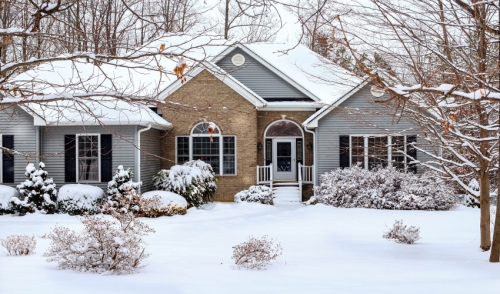
Do's and Don'ts of Home Winterization
Winter is on the way, and that means it’s time to get the house ready for the cold days ahead. Winterizing your home is the best way to avoid unexpected maintenance and repair bills during a time when you need your heating and other systems the most. Below, we will discuss things you need to consider when winterizing your home, as well as potential pitfalls along the way.
Do: One of the first things you should do is schedule a furnace inspection. Whether you have forced hot air or hot water baseboard/radiators, it’s always a good idea to have your furnace or boiler inspected and serviced before the winter months arrive. When you do so, make sure you are hiring an HVAC professional to do the work. If you have forced hot air heat, this is also a good time to have your ducts cleaned. Stocking up on filters so that you can change them monthly is a good idea. If you have not done so already, consider switching to a programmable thermostat, which can add up to big savings once the cold weather hits.
Don’t: You shouldn’t wait until the first cold night to turn on your furnace. That’s when you will actually need it. It’s best to test it prior to needing it. Also, don’t attempt to service your furnace yourself. If the cold weather has arrived and you will be going away for a short time, don’t turn the heating system off. It’s best to just turn it down to a minimum temperature of 50° or so. That way you will ensure that nothing will freeze while you’re gone.
Do: Take a walk around the outside of your home. Keep an eye out for cracks in your homes foundation and repair them immediately if found. Also, clean out your gutters and downspouts. This will keep debris from trapping moisture, which can freeze, buildup and damage your gutters, roof and siding.
Don’t: Leaving hoses connected to the outside of the house can cause damage to your plumbing. Make sure that hoses are disconnected and they are drained completely. If you have outside AC units, don’t cover them with plastic as it could cause damage to them over the winter.
Do: Have your chimney inspected and cleaned if necessary. If you don’t have one already, get a cap or screen installed on the top of your chimney to keep out rodents and birds. If you have a fireplace, inspect the damper to make sure it opens and closes properly.
Don’t: Don’t just hire anybody to clean your chimney. Make sure that they are a certified chimney sweep. The Chimney Safety Institute of America (CSIA) has resources available to help you to learn more. Make sure that you do not store your firewood next to the home. This can attract bugs and rodents.
Do: Inspect your windows and doors for gaps. Add weatherstripping and insulation where appropriate. If you have summer screens in your basement windows, replace them with their glass counterparts for the winter. Check your attic for adequate insulation levels and add more as needed.
Don’t: Be careful not to over-insulate your attic. Often, insulation can be packed too tightly, which reduces its R-value. In addition be careful not to clog the vents at the eaves, reducing airflow and resulting in issues down the road.
